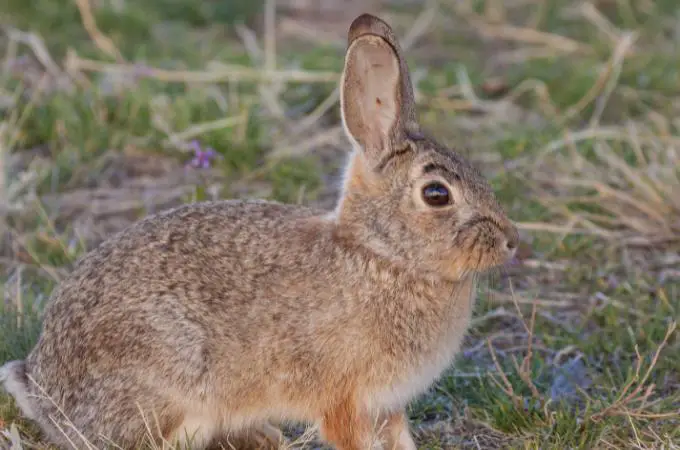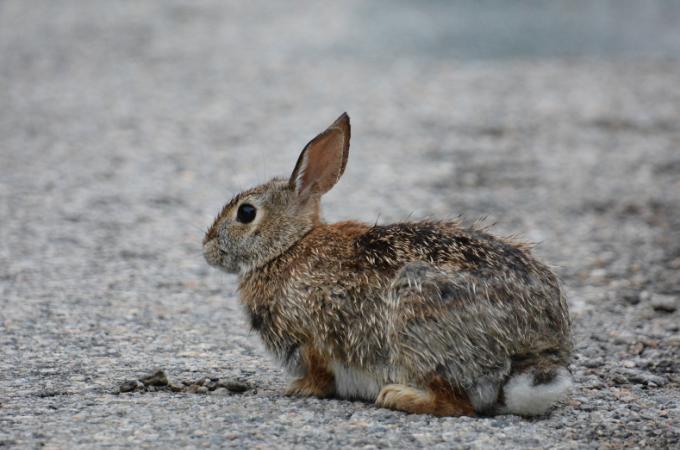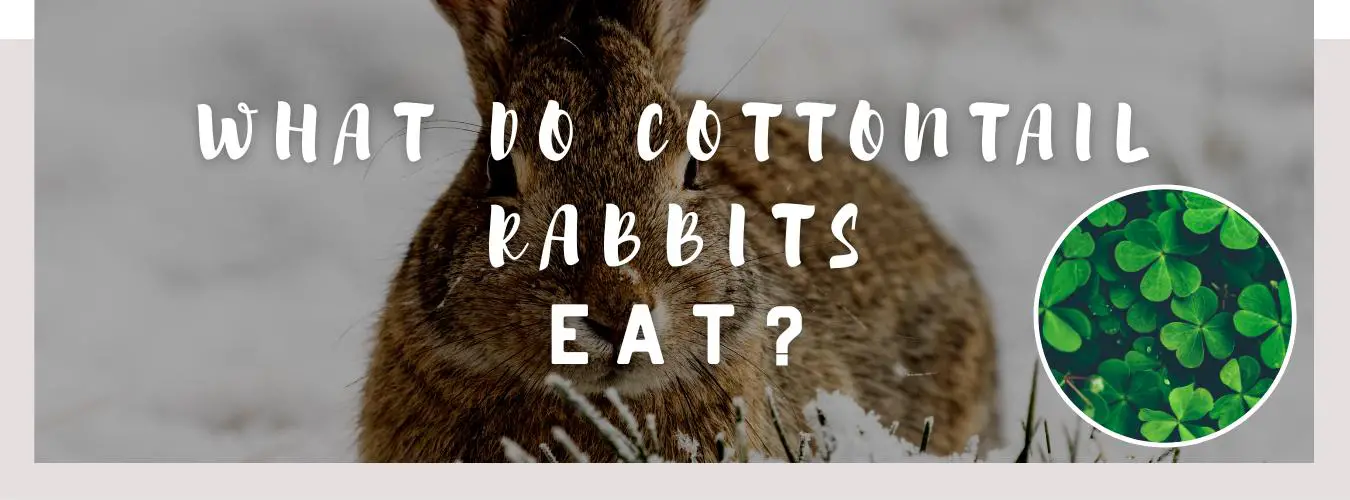
Have you ever noticed a cute, fluffy cottontail rabbit running around in the wild and wondered what they eat to survive? Understanding their diet is not only fascinating but essential if you ever find yourself caring for either a wild or domesticated cottontail rabbit. In this article, we’ll investigate their natural eating habits, nutrient requirements, as well as how best to provide proper care while in captivity.
Cottontail Rabbit’s Natural Diet
Cottontail rabbits are herbivores, meaning they mainly consume plant matter. In the wild, their diet might include:
Cottontails prefer a variety of wild plants and grasses. Some favorites include clover, dandelion, and various native grasses. Cottontails will also eat weeds, leaves, and buds which makes them highly adaptable foragers.
Fruits and Vegetables
Though fruits and vegetables don’t make up a major part of their diet, cottontail rabbits do enjoy occasional treats like berries, apples, or carrots when available in their natural habitat. They tend to consume these items when available.
Tree Bark and Twigs
Cottontail rabbits may resort to eating tree bark and twigs during cold months when food sources are scarce, in order to survive.
You might also like: Do Wild Rabbits Eat Carrots?
Feeding Habits and Preferences

Seasonal Changes
Cottontail rabbits’ diet varies with the seasons. In spring and summer, they focus on tender greens and succulent plant material, while in fall and winter, they switch to woody plants, bark, and twigs for sustenance.
Dietary Balance
Cottontail rabbits must maintain a balance in their diet to stay healthy. Eating too much or little of any nutrient can lead to health issues, so this is why they forage on such diverse plants.
Nutrient Needs
Cottontail rabbits require a diet that is rich in:
Fibrous Content
Fiber is essential for rabbits’ digestive health. A high-fiber diet helps them achieve proper digestion and helps avoid gastrointestinal issues.
Proteins
Proteins are essential for growth, tissue repair and overall wellbeing. Cottontail rabbits obtain their protein from plant sources like legumes, seeds and leaves.
Vitamins and Minerals
A balanced diet for cottontail rabbits provides them with all the necessary vitamins and minerals. Important ones such as vitamin A for eye health, vitamin D for bone health, and calcium for strong teeth and bones will all benefit from such a dietary regimen.
Common Foods in a Cottontail Rabbit’s Diet
Cottontail rabbits often consume the following items when in the wild:
Clover
Clover is a favorite food among rabbits due to its high protein and fiber content. Plus, it’s abundant in many natural habitats, providing them with an easily accessible source of nutrition.
Dandelion
Dandelion leaves are packed with vitamins A, C and K as well as minerals like calcium, iron and potassium. These nutritious powerhouses make a nutritious part of any cottontail rabbit’s diet.
Lettuce
Lettuce, especially dark and leafy varieties, provides cottontail rabbits with essential hydration and vitamins. However, it should be fed in moderation to avoid digestive issues.
Carrots
Rabbits love carrots due to their natural sweetness. Additionally, they’re an excellent source of vitamin A which is necessary for good vision and a robust immune system.
Berries
Wild berries such as blackberries and raspberries make occasional treats for cottontail rabbits. Although they provide antioxidants and vitamins, it’s best to consume them in moderation due to their sugar content.
You might also like: Do Rabbits Eat Cucumber Plants?
Cottontail Rabbit Toxic Foods

Certain foods can be toxic or hazardous for cottontail rabbits. Examples of such things include:
Domesticated Foods
Processed foods, such as bread, pasta and sugary treats are not suitable for rabbits. They may cause severe digestive issues and lead to obesity.
Poisonous Plants
Some wild plants can be hazardous to rabbits, such as hemlock, foxglove, and nightshade. Therefore, it’s essential that you are aware of these dangers and avoid feeding them to your rabbit.
Feeding Cottontail Rabbits in Captivity
When caring for a cottontail rabbit in captivity, it’s essential to provide them with a diet that replicates their natural eating habits. Here are some tips on feeding your captive cottontail rabbit:
Hay and Pellets
Hay, such as timothy orchard grass, should form the majority of your rabbit’s diet. High-quality pellets may also be fed in small amounts for extra nourishment.
Fresh Vegetables
Start by offering a variety of fresh leafy greens like kale, collard greens and parsley to your guests. Introduce new veggies slowly so as not to stress their digestive system too much.
Water
Always provide your rabbit with fresh, clean water at all times. Change the water daily and clean any dishes or bottles used for drinking to prevent bacterial growth.
Supplemental Feeding of Wild Cottontail Rabbits
While providing food to wild rabbits may seem like a good idea, it’s essential to weigh the benefits and drawbacks. While providing food can help them weather harsh winters, it may lead to dependency and disrupt their natural foraging behaviors. If you decide to provide food, make sure it’s suitable for rabbits and doesn’t contain processed or toxic items.
Conclusion
Cottontail rabbits require specific nutritional needs, both in the wild and captivity. By providing them with a balanced diet that mimics their natural eating habits, you can help ensure these adorable creatures remain healthy and flourish in their environment.
1. Can Cottontail rabbits eat apples? 1. Does cottontail rabbit food taste bad to them?
Cottontail rabbits can eat apples, but it should be done in moderation due to their sugar content. Remove any seeds that contain cyanide which could be toxic for rabbits.
2. How often Should I Feed a Cottontail Rabbit in Captivity?
Cottontail rabbits should always have access to hay, which should make up the bulk of their diet. Fresh vegetables can also be offered daily; rabbit pellets should be fed in small amounts according to each rabbit’s weight and age, with plenty of fresh water nearby.
3. Can Cottontail rabbits eat spinach?
Cottontail rabbits can eat spinach, but it should be fed sparingly due to its high oxalate content. Oxalates may interfere with calcium absorption and lead to potential health issues.
4. What Should I Do if I Discover an Injured Wild Cottontail Rabbit?
If you come across an injured wild cottontail rabbit, it’s best to contact either a wildlife rehabilitation center or a veterinarian who specializes in treating wildlife. They will offer appropriate care and provide guidance on the next steps.
5. Are there any foods I should avoid feeding a captive cottontail rabbit?
Avoid feeding your cottontail rabbit processed foods such as bread, pasta and sugary treats. Also be wary of toxic plants like hemlock, foxglove and nightshade; never give them to your rabbit. When introducing new foods gradually to prevent digestive upset, be mindful of any possible allergic reactions.









